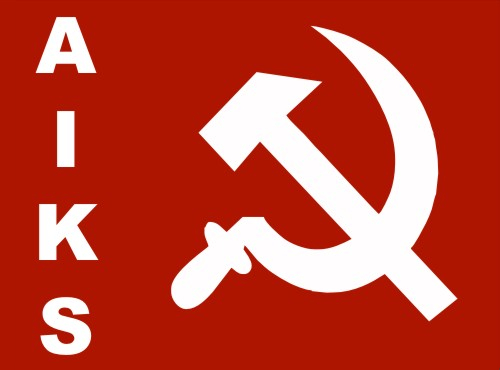Demonetisation has led to chaos in lives of farmers and rural poor
All through the Kisan Sangharsh Jatha crisscrossing across rural India we found that the Prime Minister’s knee-jerk announcement of withdrawal of Rs.500/- and Rs.1000/- has led to chaos in lives of farmers and rural poor. Overwhelmingly these notes have been in use for transactions more than the notes with smaller denominations which account for a little over 15 percent of total liquidity in the country. We found huge winding queues outside banks and ATMs across rural India till late evening.
Agriculture remains the main source of livelihood and ready availability of cash for Investment in agricultural activity and to meet household expenses has been disrupted rather abruptly. The decision coming in harvest season has led to further distress for farmers who are already in deep crisis. It will also adversely affected the Rabi sowing in different parts of India. Agricultural Workers are not being paid wages, people are unable to purchase essential commodities, vegetables and medicines, small shop keepers are not having buyers and even unable to undertake travel due to non-availability of cash. Institutional credit is not accessible to vast majority of poor peasants, tenant farmers and agricultural workers most of whom are from socially oppressed sections. They also depend on cash borrowings, the possibilities for which are now frozen.
It is also known that mere opening of Jan Dhan accounts have not made access to credit any easier and most transactions are still through hard cash. We found farmers who wanted to sell their produce but traders were not prepared to buy as there was no ready availability of legally tenable currency. Farmers seeking to sell their produce in the market are unable to find buyers. The problem has been particularly acute for farmers seeking to sell perishable goods like vegetables, fruits, flowers as well as for fishing community seeking to sell their catch. The inability to exchange the notes for food as well as other daily expenses also led to problems. The losses suffered by farmers due to price crash and loss of perishable commodities needs to be assessed. District wise and crop wise assessment must be made and farmers should be compensated for the losses.
There was a case of a woman who had sold her agricultural land for meeting medical expenses of a paralysed husband and for expenses of her daughter committing suicide out of fear that depositing anything above Rs.2.5 lakh would invite action for possession of black money. The farmers and rural poor are seething with anger at the harassment they have had to undergo in the name of fighting black money. The fact that most in front of banks were either poor peasants, agriculture workers or rural poor rather than the rich whom the decision was supposedly targeted against also proves it is only a move seeking to create an illusion of fighting corruption. The Adanis, Ambanis and Mallyas and all those with black money stacked in foreign banks are moving scot-free while common masses are being harassed. The government should put an end to the misery of people by allowing the use of the notes and retaining their validity till proper arrangements are made.
AIKS will along with other democratic sections hold protests, expose the doublespeak of the BJP and also organise help for the harassed masses.
Sd/-
Amra Ram, President
Hannan Mollah, General Secretary
14th Nov. 2016,
New Delhi

